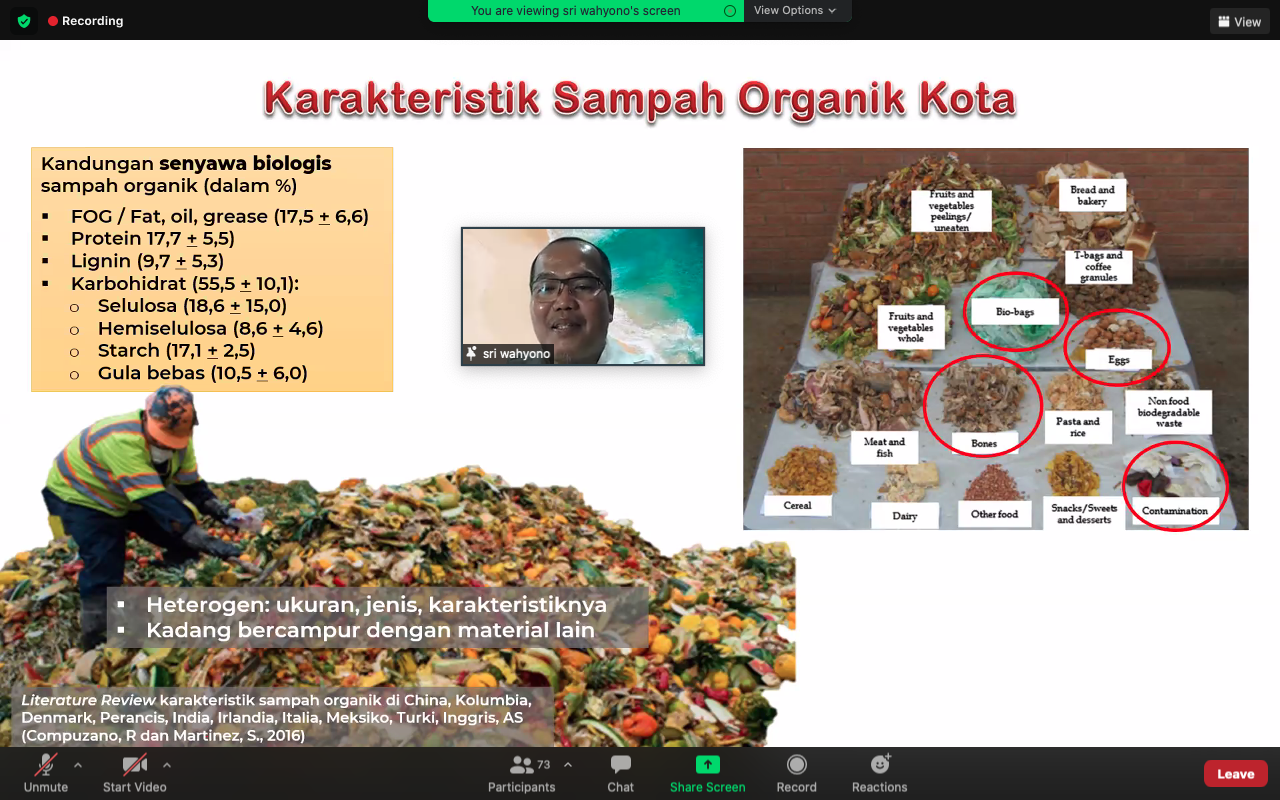National Waste Care Day (HPSN) is celebrated on February 21 every year. For the past five years, HPSN has become a momentum to build public awareness in efforts to reduce waste. These efforts have yielded very positive results. The Master Program in Environmental Engineering, Department of Civil Engineering, Faculty of Engineering, Universitas Indonesia (FTUI) also contributed to educating the public regarding the importance of national waste management in the public lecture of the Environmental Engineering Special Topic Subject with the title “Resource Recovery as the Future of Environmental Engineering” which was held Monday, (21/2).
The lecture material was delivered by experts, Dr. Sandhi Eko Bramono, Chair of the Indonesian Association of Environmental Engineering and Sanitary Engineers in the Province of East Kalimantan and Dr. Sri Wahyono. S.Si., M.Si, researcher at the Center for Environmental Research and Clean Technology (PR LTB) of the National Research Agency (BRIN).
Dr. Sri Wahyono. S.Si., M.Si delivered a material entitled “Organic Waste Management in Indonesia”. Organic waste comes from living things that are easily decomposed naturally without human intervention processes to decompose. This type of waste is commonly found in the surrounding environment. Based on data from the National Waste Management Information System (SIPSN) in June 2021, the amount of urban organic waste is 53.7% of the total waste and 39.7% is dominated by food waste, which weighs 25.4 million tons per year. This fact is in line with a study conducted by the Economist Intelligence Unit which stated that Indonesia is the second largest waste-producing country in the world.
“The large amount of organic waste produced by the community has an impact on the environment, economy and social. From an environmental perspective, it will cause foul odors, leachate, and disease, as well as greenhouse gases that cause global warming. Not only that, the environment will also be threatened with water scarcity and soil erosion. Then, from an economic point of view, the losses caused by 1.3 gigaton food waste per year are as much as USD 700 billion. Health risks, increased conflict, and loss of livelihoods also have a social impact on the world community,” said Dr. Sri Wahyono.
The existing organic waste will not be a threat if the waste can be utilized. Utilizations that can be made by households include composting, biogas food digester, maggot cultivation, biopori, and making animal feed. This organic waste activity can also apply to a larger scale to the city scale.
Meanwhile, Dr. Sandhi Eko Bramono showed the success of East Kalimantan in managing waste which resulted in a well-organized waste management site. “Community participation in waste management plays an important role in this success. The community must be educated to be able to sort waste at the family and community level. With the segregation of waste from upstream, of course, it will facilitate the management of waste downstream. One of these uses is gas fuel which the local community uses for cooking.”
On a separate occasion, the Dean of FTUI, Prof. Dr. Heri Hermansyah, ST., M.Eng., IPU expressed his support for this positive activity. “With the HPSN warning, I hope the public will be made aware that waste that is not managed properly will be a disaster for the current community and the next generation. However, if waste is used properly, it will bring blessings and benefits to the community itself.”
***
Public Communication Bureau
Faculty of Engineering, Universitas Indonesia

